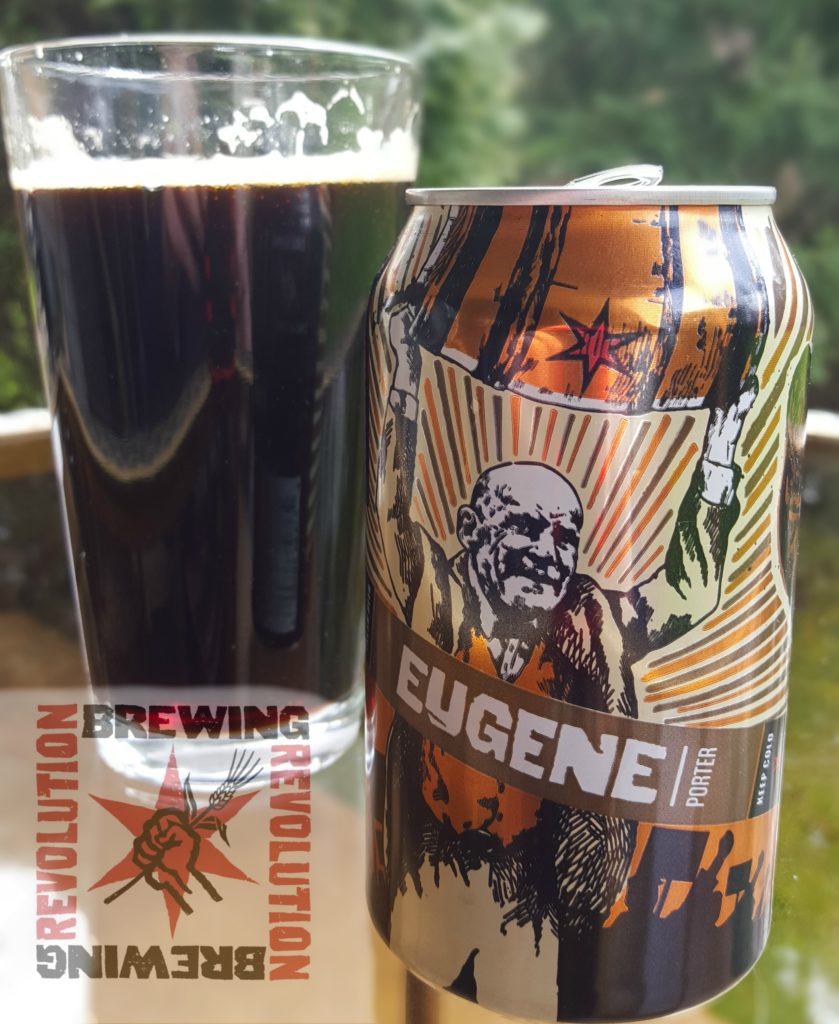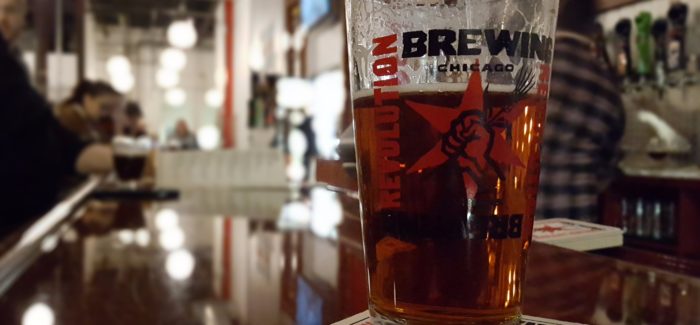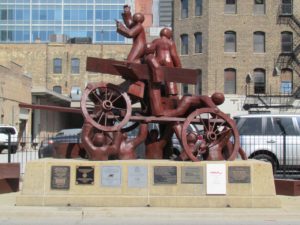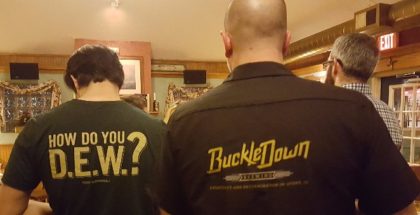Chicago’s Beer Denotes its Rich Labor History
Chicago developed its big shoulders through the effort of those who toiled and labored, initially for little pay and having to endure horrendous working conditions. Railroads, meatpacking, printing and construction provided wealth to some, and a financial pittance to others. That discrepancy led to numerous clashes. From the Pinkertons to Pullman and Martin Luther King to Mother Jones, Chicago possesses a deep, rich history tied to race, immigration, class and labor. Many reminders of that legacy can be viewed in the beer Chicagoans drink.
Haymarket Pub & Brewery
The infamous Haymarket Affair (May 4, 1886) came after several days of strikes and skirmishes between anarchists, unions, private security forces, and the police. Indeed, the events leading up to the Haymarket Affair begat May Day celebrations found everywhere from the Soviet Union to the modern-day Occupy Movement protests. The Haymarket memorial and statue have served as a hotbed of protest activity in the aftermath of the 1968 Democratic Convention as well as during the 2012 NATO protests. Haymarket lives on in Chicago, and throughout the world.
Even if you know nothing about the event, or even care, the Haymarket Pub stands as a reminder of its legacy.
Speakerswagon® Pilsner:The speakers at Haymarket used a wagon as its stage, hence the name of the beer.
Lizzie’s Simcoe I.P.A: Lizzie was arrested alongside eight other labor martyrs during the Haymarket Affair, but the charges were dropped two days later.
Mother Jones Belgian Abbey Dubbel: Mary Harris “Mother Jones” traveled the country and served the needs of many union families, from Chicago to the Colorado Ludlow Massacre. She was known for exclaiming, “Pray for the dead, fight like hell for the living!”
An excerpt from Elliot J. Gorn, Mother Jones: The Most Dangerous Woman in America, says it well:
“She was the Johnny Appleseed of American activists, giving speeches and organizing across the continent, sleeping in workers’ cabins, boardinghouses, or the homes of friends. Asked to state her residence to a congressional committee, she declared, “I live in the United States, but I do not know exactly in what place, because I am always in the fight against oppression, and wherever a fight is going on I have to jump there … so that really I have no particular residence.” She added, “My address is like my shoes; it travels with me wherever I go.”
Mathias® Imperial I.P.A: Officer Mathias Degan was the first Chicago policeman to die during the Haymarket bombing.
Oscar’s Pardon Belgian-Style Pale Ale: Named after Oscar Neebe, the labor activist and anarchist. Pardoned by the governor after the Haymarket Affair, he later remarked, “I Am Sorry Not to Be Hung.”
https://www.instagram.com/p/BXRCeWijeVW/?taken-by=haymarketpub
Revolution Brewing & Eugene Debs
The Revolution Brewing logo and artwork pay homage to Chicago’s labor history and its rebellious, revolutionary nature. More directly, one of its original beers, and my personal favorite among Rev’s flagships, is its Eugene Porter. Named for Eugene Debs who organized the American Railway Union and famously, in 1894, led the charge to strike against the Pullman Company of Chicago. He lost five straight presidential elections, each time representing the Socialist Party.

Argus Brewery | Pullman Palace Car
You can’t talk about Eugene Debs without referencing George Pullman, a man for whom thousands of history books have been written. Pullman helped revolutionize railways with his luxury cars, and he attempted to create the perfect factory town, serving as its totalitarian leader. That town now exists at the Pullman neighborhood in Chicago and that his where you’ll find Argus Brewery. In 1894, Debs’ American Railway Union mounted a boycott of the nation’s Pullman railway car, which crippled the nation’s transportation system. The courts deemed the strike illegal and President Grover Cleveland followed by sending 2,000 federal troops and 5,000 marshals to Chicago; violence ensued.
Read more here at the Encyclopedia of Chicago:
Whiner Brewing
You may be wondering how a brewery that specializes in traditional (and delicious!) French and Belgian brewing (read: sours) can be attached to labor history. Well, Whiner is located in Chicago’s Back of the Yards neighborhood — that’s back of the stockyards, if you don’t know. Chicago’s ability to become “Hog Butcher to the World,” included a lot of stories people don’t like to hear, but Upton Sinclair’s The Jungle forced people to face reality.

The Back of the Yards were filled with immigrant workers that lived in fifth, yet remained tied to their homeland traditions — true ethnic enclaves emerged. But, over time, labor and class dominated and those who worked the stockyards formed unions. Read Dominic Pacyga “Slaughterhouse” for more, or this Chicago Tribune Summary & Review of the book.
By the way, Whiner makes amazing beer, and they continue to slaughter.
5 Rabbit Brewery (Cerveceria) | Chinga Tu Pelo (Fuck Your Hair) Beer & Campaign
In 2015, the Latin-inspired brewery located across the street from Chicago’s city limits on the southwest side, in Bedford Park, took offense to then presidential candidate Donald Trump’s statements that referred to Mexican immigrants as criminals and rapists. Unless you’ve lived under a rock, you know the story of the proposed border wall, jobs, immigration…well, it’s on the news everyday, it seems.
So, with the same vigor and passion exuded by Gilded-Age and Progressive-Era European workers, Chicago’s increasingly influential Latin-American population represent a new wave of labor activists.

When President Trump made those comments, 5 Rabbit had been producing a house beer exclusively for the Trump Tower in Chicago, but it was clear that relationship could not continue.
We would be doing an injustice to the community we serve (and live in) by engaging in business with someone who does not accept our role in society and expresses a rhetoric of hate and ignorance towards us. On a personal level, if I did, one of the things that scares me the most is sending the wrong message to my daughters. We are active members of this immigrant community and we need to stand up for ourselves, and more importantly, for those who do not have the voice or means to do so. The very foundation of the United States of America was built on acceptance and inclusion. That is what drew us here, and that´s what why we feel so strongly about this. As a company, an integral part of our vision reads that we are “not only based in, but also look to promote a strong and positive image of Latin America, its heritage and people.” It would be hypocritical of us to sustain the relationship.
— Andrés Araya, founder
That quote, and much more about the movement, can be found on their page dedicated to the Chinga Tu Pelo campaign.









Submit a Comment